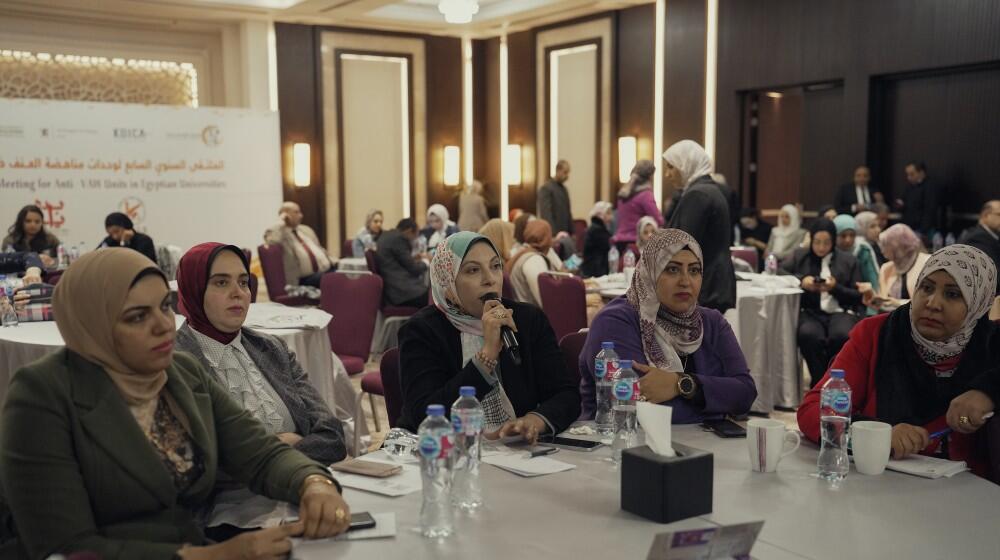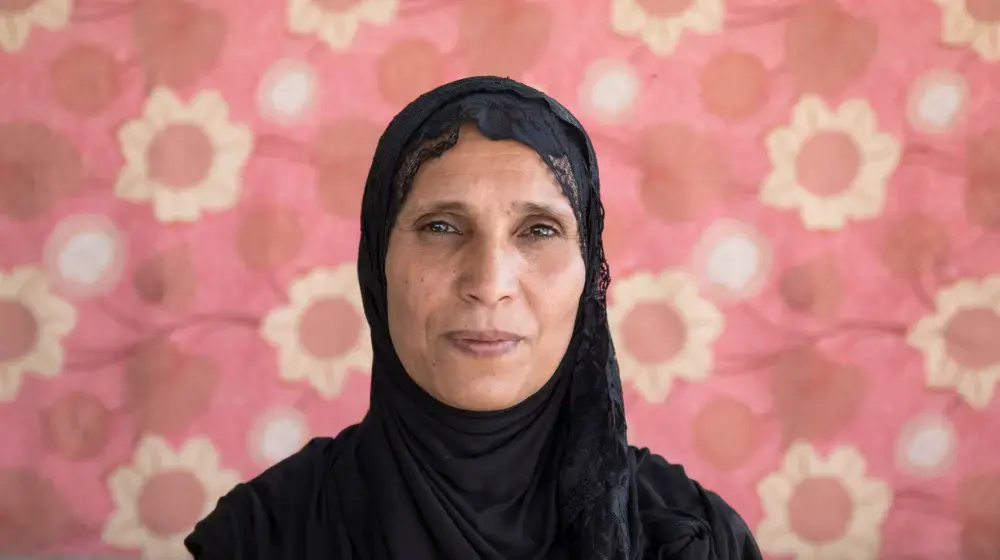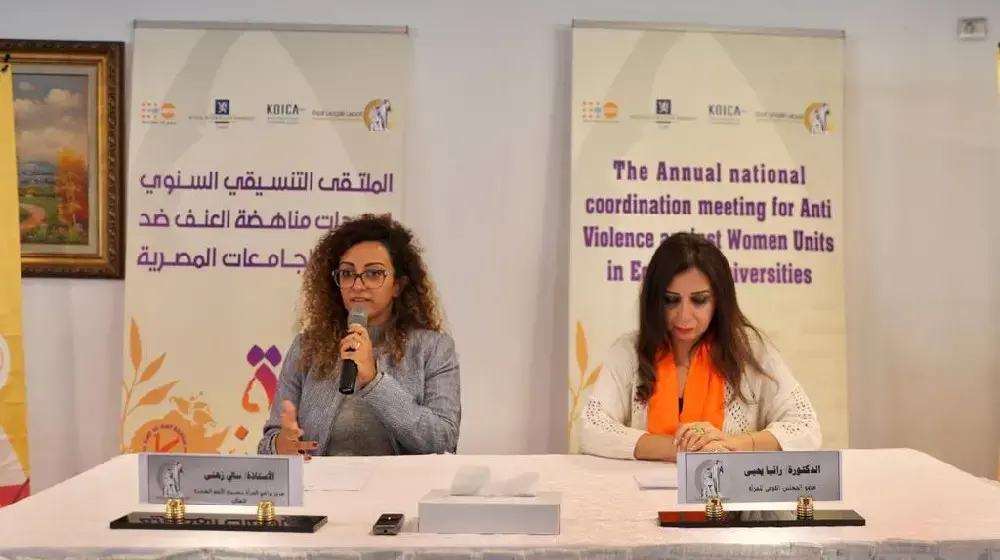The Annual Coordination Meeting for the Anti-Violence Against Women University Units brought together advocates, experts, and university representatives for its 7th edition in Cairo on November 25.
The event coincided with the International Day for the Elimination of Violence Against Women and the beginning of the 16 Days of Activism Against Gender-Based Violence, further underscoring its importance as a platform for reflection, action, and collaboration.
This year’s meeting brought together key stakeholders to celebrate seven years of progress, confront persistent challenges, and strengthen partnerships for future initiatives. The primary objectives were to review the achievements of university-based anti-VAW units, facilitate networking with legal and medical service providers, and address emerging issues such as technology-facilitated violence and supporting individuals with disabilities. These objectives reaffirm the multifaceted approach needed to create safe and inclusive academic environments.
There are currently 42 Anti-Violence against Women Units in universities across 24 governorates, offering informative sessions, reporting processes and documentation of incidents of violence against women on campus.
The event began with keynote speeches by Germaine Haddad, UNFPA Egypt Assistant Representative, Ritu Tariyal, Deputy Mission Director of USAID, Dr. Mona Hagras, Assistant Secretary-General of the Supreme Council of Universities, and Professor Nisreen Ibrahim El-Baghdadi, board member of the National Council for Women. Together, they emphasized the critical importance of collective efforts to combat violence against women, foster safer and more inclusive spaces, and advance gender equality. They highlighted the role of partnerships across sectors, the transformative power of education in changing negative social norms, and the need for unified action to create lasting change and ensure dignity, respect, and equal opportunities for all.
Throughout the day, expert presentations and interactive sessions tackled critical aspects of combating violence. Shaima Naeem, Director General of the General Department of Strategy, shared an overview of the progress and challenges faced by anti-VAW university units. Amal Tawfik, Director of the Women’s Complaints Office, outlined the referral pathways available to survivors, while Maha Helaly addressed the intersection of violence and disability inclusion on campus. Sally Zohney, gender specialist at UNFPA, explored the pressing issue of technology-facilitated gender-based violence, and Ahmed Gomaa, lawyer with the Women’s Complaints Office, discussed legal advancements in protecting women’s rights.
A highlight of the meeting was the collaborative session where representatives from universities and anti-VAW units shared their experiences and best practices. Over the past seven years, these discussions have consistently served as a cornerstone for developing innovative strategies to combat violence and foster awareness on campuses. This year, the focus expanded to include leveraging technology and strengthening survivor support networks.
As the meeting concluded, actionable recommendations were formulated to guide future initiatives. These included amplifying awareness campaigns, integrating disability-inclusive strategies, utilizing technology to support survivors, and advocating for robust policy implementation across academic institutions.




